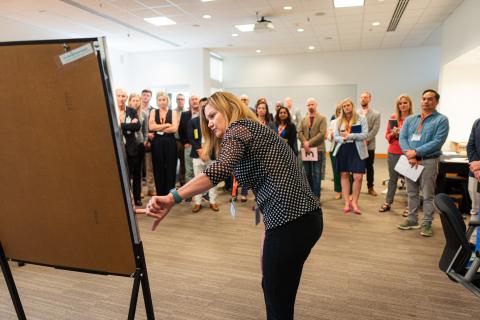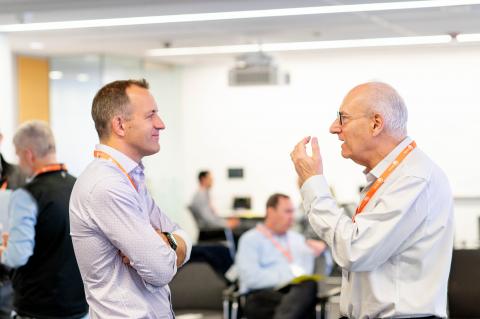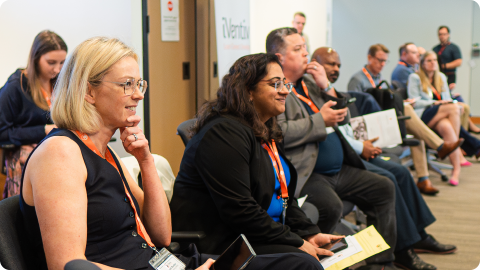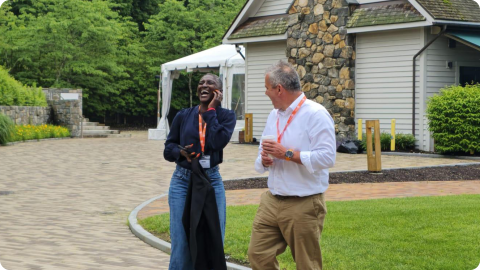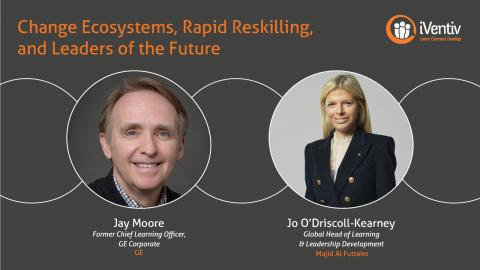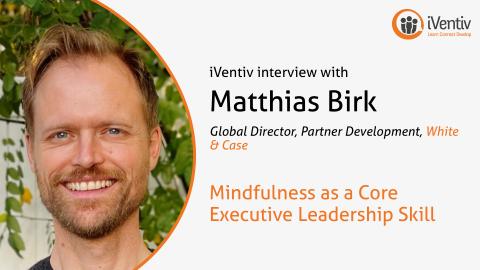Submitted by Kerry Summers on
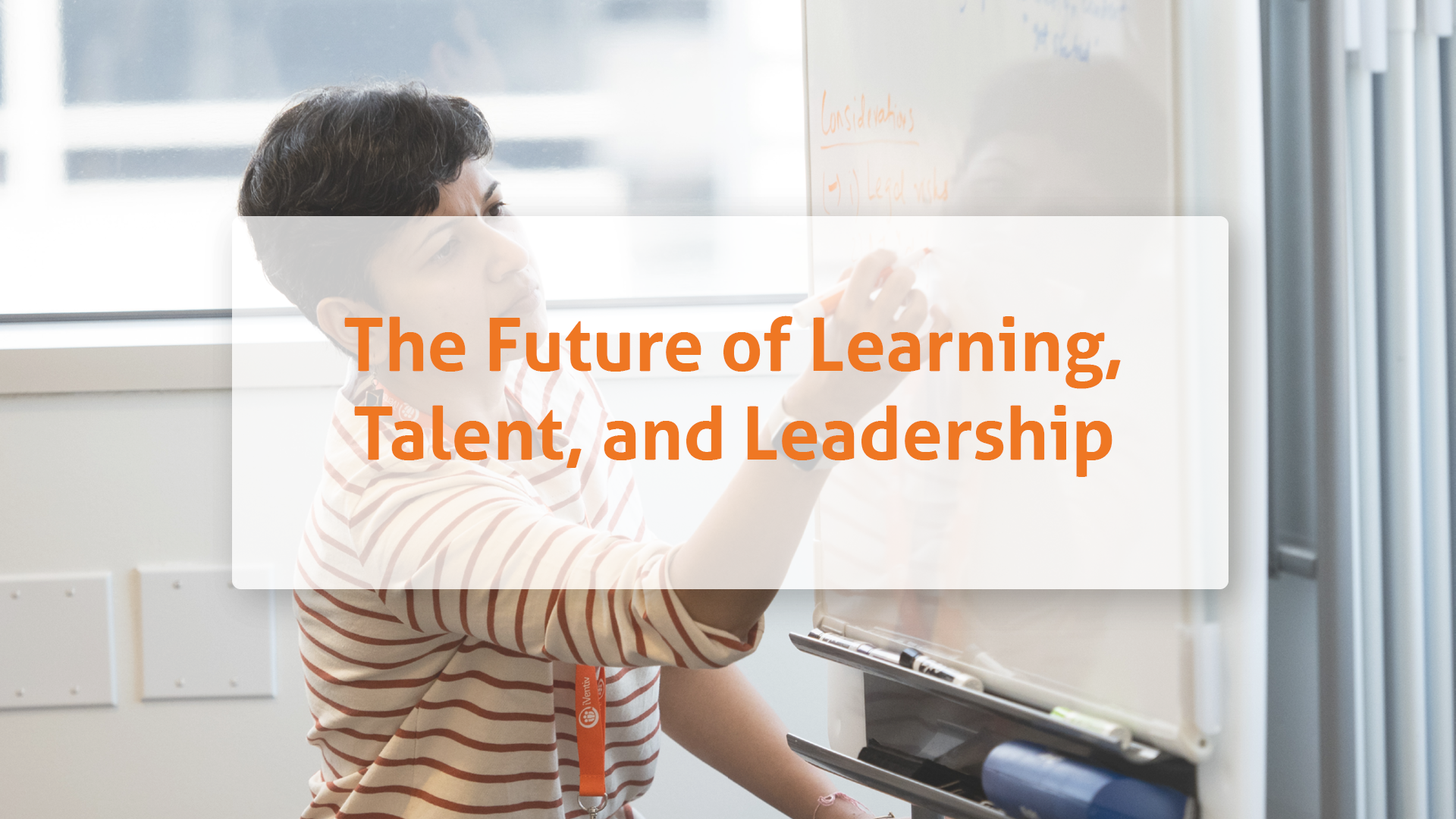
The world of corporate learning, talent, and leadership is undergoing a period of intense transformation. As organisations strive to build resilient workforces and agile leaders, Chief Learning Officers and Heads of Talent, and Leadership face an array of challenges and opportunities.
The conversations at iVentiv’s recent Learning Futures sessions in Atlanta and Paris highlight the pressing themes that are shaping the future of workplace learning. Leadership and Executive Development, Reskilling and Upskilling, AI, and Learning Culture were the four most popular priorities identified by Global Heads of Learning at iVentiv events in 2024, so it’s no surprise to see all four represented in the top priorities of attendees at last month’s events as well.
These sessions, attended by senior learning executives, surfaced key trends, strategic shifts, and organisational imperatives that will define 2025 and beyond. The full executive summary is available for you to read on iVentiv’s Global Learning Network iKnow now.
Leadership & Executive Development: A Strategic Business Imperative
Leadership and Executive Development remain at the forefront of corporate priorities. This was top of mind for 56% of attendees in Paris, and in Atlanta, we saw this climb to 62%. According to participants at both sessions, businesses are increasingly aligning leadership programs with organisational strategy, ensuring leaders are equipped to drive transformation.
Key themes from the discussions included:
- Visionary Thinking & Agility: Leaders, they said, must anticipate industry shifts and embrace an adaptive mindset.
- Data-Driven Decision-Making: Balancing data insights with qualitative perspectives remains a challenge, but is critical for leadership effectiveness.
- Peer-to-Peer Learning & Mentorship: Continuous leadership refinement comes from structured mentorship programs and experiential learning opportunities, say many.
Notably, the debate continues around whether Leadership Development should lead or support business strategy. However, what is clear, based on the outcomes of the conversations, is that CLOs feel leadership initiatives need to evolve beyond traditional approaches and focus on practical, real-world applications.
Reskilling & Upskilling: Crucial for Workforce Transformation
For 52% of leaders in Paris, and 48% of leaders in Atlanta, ‘reskilling and upskilling’ is a topic that continues to resonate. Organisations are experiencing accelerated demand for new skills, learning leaders recognise that the shelf-life of skills is shortening, and there is a growing urgency to embed reskilling and upskilling into the corporate agenda.
Findings from last month’s Executive Knowledge Exchanges suggest that a successful skills strategy hinges on:
- Clear Skill Taxonomies: Defining skill frameworks and competencies aligned with business objectives.
- Data-Driven Learning Strategies: Leveraging workforce analytics to assess capability gaps and forecast future skill needs.
- Embedded Learning in Workflows: Shifting from standalone training initiatives to an integrated skills development culture.
Future-focused skills development, experts say, is not just about keeping pace with change—it is about ensuring workforce adaptability in the face of uncertainty.
Artificial Intelligence in Learning: Balancing Innovation with Ethics
Although AI is the third-most selected topic overall for both cohorts, at 56% the raw percentage is notably higher in France. The group was no more tech-driven than those who gathered in Atlanta, but the high percentage may reflect a genuine drive among French businesses to get ahead with AI, with more than one respondent referring to company-wide technology drives or, in one case, “AI transformation”.
AI is reshaping the Learning landscape, but its successful integration, for Heads of Learning, requires strategic foresight. Leaders discussed how AI is revolutionising corporate learning and identified key priorities for 2025:
- Ethical AI Deployment: Maintaining human-centric learning while embracing automation and efficiency.
- AI-Driven Skills Mapping: Personalising learning experiences through AI-powered skill tagging.
- Reallocating Freed-Up Capacity: Using AI to automate routine tasks and allow L&D teams to focus on higher-value initiatives.
The use of AI-driven leadership simulations is also growing, providing leaders with immersive, real-world experiences to refine decision-making. Insights from an exclusive session led by iVentiv partner Abilitie shed light on how simulations are transforming leadership learning. They mentioned:
- AI-Powered Decision-Making: Enabling leaders to test strategies in risk-free environments.
- Team-Based Challenges: Offering dynamic, real-world business scenarios to build leadership confidence.
- Blending Technology with Human Interaction: Ensuring that AI enhances leadership learning rather than replacing human judgment.
This shift towards experiential, scenario-based learning underscores a growing demand for practical, high-impact leadership development. One recurring theme was the importance of AI augmentation rather than replacement—ensuring that technology enhances rather than diminishes human engagement.
The Future of Work: Organisational Learning at the Speed of Change
Learning culture has taken the top spot on the priority list for 60% of attendees from our Paris cohort. They said that, to thrive in an era of disruption, organisations must ensure that their learning ecosystems evolve faster than the external environment.
Insights from the iVentiv community pointed to key strategies for achieving this:
- Fostering a Culture of Curiosity: Creating an environment where learning is continuous and self-directed.
- Measurement & Impact: Implementing robust metrics to assess the ROI of learning initiatives.
- Strategic Agility: Embedding learning within business strategy to ensure responsiveness to emerging trends.
Participants also highlighted a paradox: while leaders often question L&D’s impact, they also acknowledge that organisational learning is essential for future resilience. Bridging this gap, the groups said, requires L&D teams to integrate business-first metrics and demonstrate tangible value.
What’s Next for Learning, Talent, and Leadership?
The themes emerging from iVentiv’s Learning Futures exchanges in Atlanta and Paris highlight a transformative moment for corporate Learning, Talent, and Leadership teams.
CLOs and senior leaders are grappling with rapid technological change, shifting workforce expectations, and increasing demands for business alignment.
To navigate this evolving landscape, the experts at both events suggested that organisations must:
- Align skills strategy with business needs using clear competency frameworks.
- Enhance Leadership Development with data-driven and qualitative insights.
- Scale AI-driven solutions through strategic vendor partnerships.
- Build a learning culture that balances structure with adaptability.
The biggest takeaway from conversations across both events was that the future of Learning & Development will not be defined by incremental improvements—it will be shaped by bold, strategic shifts that reimagine the role of Learning in business success.
As we move into 2025, one thing is certain: the conversation around Learning, Talent, and Leadership is just getting started.


